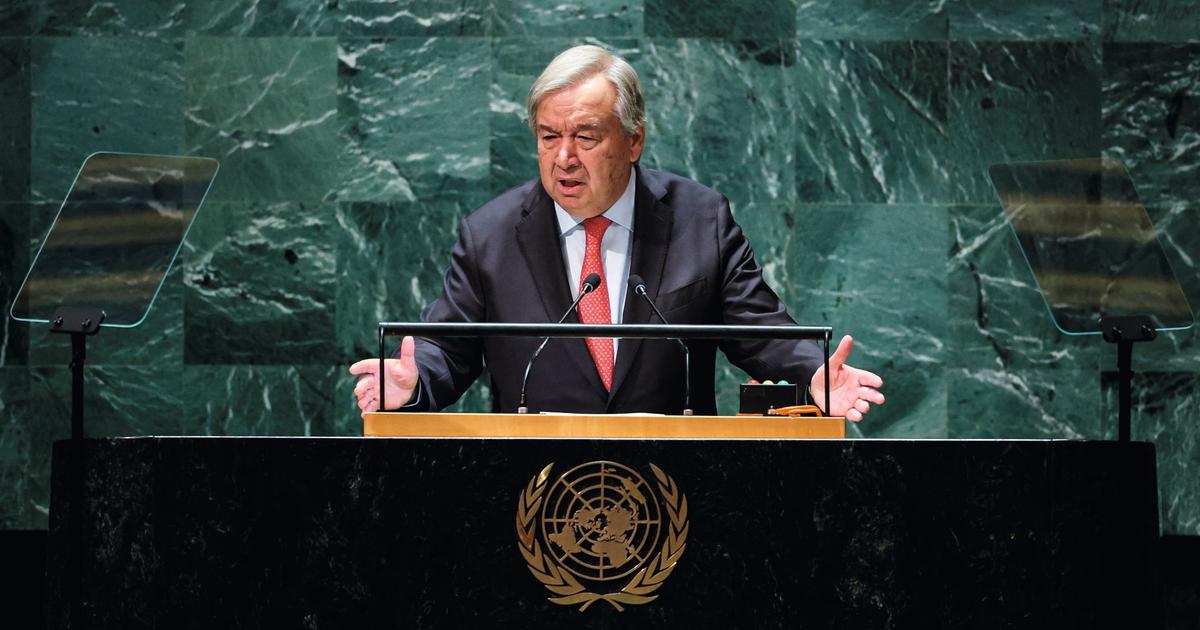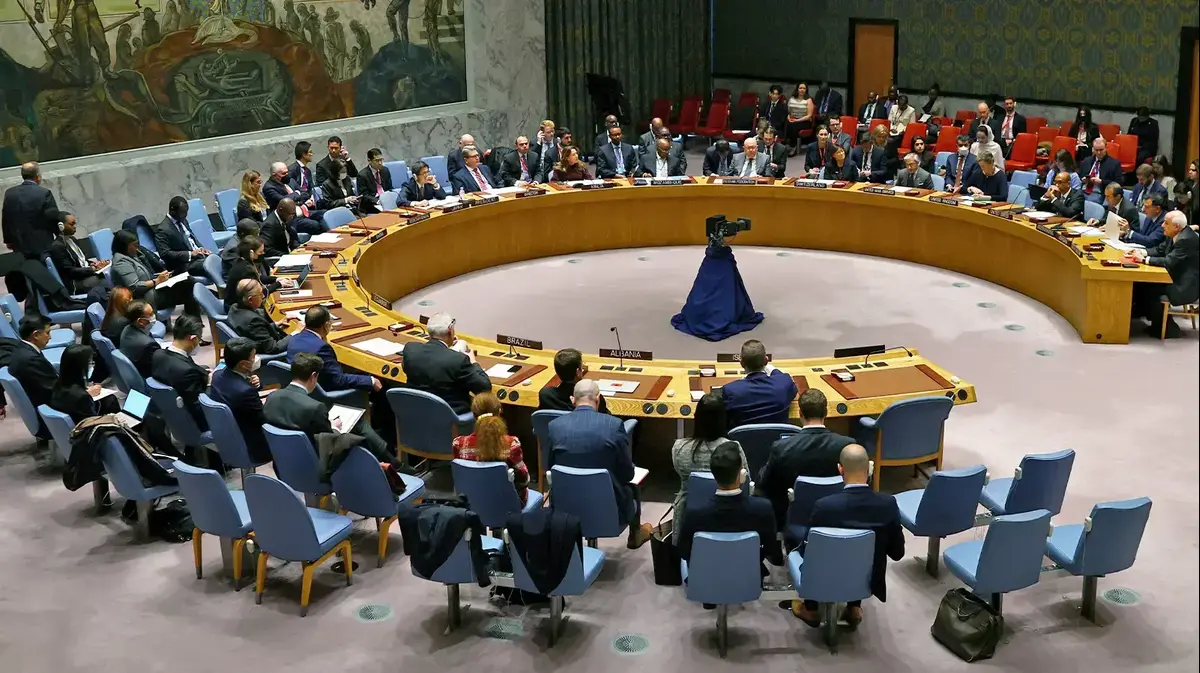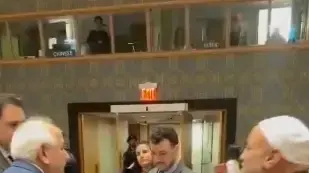Icon: enlarge
UN General Assembly in New York: "Much more than an organization to prevent war."
Photo: EMMANUEL DUNAND / AFP
SPIEGEL:
Mr. Steiner, 75 years after its founding, the UN's balance sheet doesn't look exactly rosy: wars like the one in Syria could neither be prevented nor ended by the international community.
Nationalism is increasing again globally.
Is the United Nations a big disappointment?
Steiner:
First of all, it looks like this, but the overall picture is not correct.
The United Nations always reflects back to us the reality of our world, with all its conflicts and geopolitical rivalries.
At the same time, however, they are a forum for the international community to confront the sad developments that you mentioned.
After all, this organization has existed for three quarters of a century and has done a lot of good.
SPIEGEL:
What is that on your mind?
Steiner:
Think of decolonization, the fight against smallpox and polio, the blue helmet operations in numerous countries or the contribution that the UN has made to peace negotiations and conflict resolution over the decades, for example in East Timor, Sierra Leone, Colombia and Lebanon / Israel, Cyprus.
SPIEGEL:
In many other cases, however, the UN has proven to be powerless.
Steiner:
I don't deny that.
But the United Nations is much more than a war prevention organization.
This is particularly evident now in the 21st century: Nobody can seriously deny that we live in a global community.
We experience this with the climate as well as with retail or digitalization.
SPIEGEL:
What exactly does the UN have to do with this?
"The United Nations is much more than a war prevention organization."
Steiner:
At its core, it enables joint action.
In addition, it helps every day, anywhere in the world, without major debates taking place that make headlines in our country.
The United Nations maintains a network of operational organizations whose work benefits everyone - it is about poverty reduction, agriculture and food, trade rules, cooperation in air and postal traffic, public health.
With the UN development program UNDP we are active locally in 170 countries, many millions of people benefit from this global solidarity.
In more than a hundred countries, we have been setting up emergency programs for governments since March so that they can better deal with the corona crisis.
SPIEGEL: Does that
mean that we should see the UN primarily as a humanitarian aid organization and not so much as a forum for global peacekeeping?
Steiner:
Not only.
Peacekeeping, development and human rights are an integral part of our tasks, as is humanitarian aid.
I was delighted that the World Food Program received the Nobel Peace Prize this year.
As we speak, World Food Program staff are making sure that nearly a hundred million people today have anything to eat.
"US membership in the United Nations was never in question."
SPIEGEL: Meanwhile,
some member states are putting the UN under considerable pressure, above all the USA.
President Donald Trump demonstratively turns away from the United Nations and its organizations, and in the spring he turned his back on the World Health Organization amid great din.
Is there a remedy for it?
Steiner:
Today we have 193 member countries in the United Nations.
Since it was founded, there have always been states that have shown themselves to be very critical - mostly because national, day-to-day political interests did not coincide with the international consensus.
The USA has withdrawn from a number of UN organizations and international agreements over the past three and a half years; this has certainly weakened the global community's ability to act.
But US membership of the United Nations was never in question.
SPIEGEL:
Do you already consider that a success?
Steiner:
I want us to keep the right perspective.
UN Secretary-General António Guterres made a very conscious attempt not to enter into a confrontation, but to show the United States how important its role is in the world community and how useful the United Nations can be for it.
It is also important that the vast majority of states continue to pursue the common goals, whether it is about climate protection, world food, AIDS or sustainable development.
"90 percent of what happens every day in the United Nations does not take place in the Security Council"
SPIEGEL:
What role do Germans play in the UN?
Steiner:
A very important one, which is sometimes seen more abroad than in Germany itself. Germans are staunch advocates of the basic values on which the United Nations is built, they are one of the largest contributors and, together with Europe, have a strong voice.
All of this counts when the world community is looking for states that may be able to join forces in the future.
SPIEGEL:
When Germany returned to the Security Council for two years at the beginning of 2018, there were high hopes in Berlin that the overdue reform of this round could now move forward.
Nothing came of that.
Steiner:
The optimism actually went very far.
But we should also see that 90 percent of what happens every day in the United Nations does not take place in the Security Council.
It is about concrete crisis management such as Ebola or droughts, aid for social and economic development, technological knowledge for everyday life, programs to protect the environment.
SPIEGEL:
Will the UN institutions remain trapped in the structures they have had since they were founded?
"This reform moment could come in the next few years, perhaps triggered by the corona crisis as a catalyst."
Steiner:
I don't think so.
To come back to the Security Council once more: Its reform will not take place as an isolated act, but will be embedded in a further development of the concept of the United Nations in the 21st century.
This moment could come in the next few years, perhaps triggered by the corona crisis as a catalyst.
SPIEGEL:
The fight against the virus costs a tremendous amount of energy. How should such a departure begin?
Steiner:
Maybe that's why.
The idea of the United Nations emerged in the middle of World War II, when then US President Franklin D. Roosevelt and Great Britain's Prime Minister Winston Churchill were thinking about a new international order.
Sometimes the darkest times are when the greatest things happen.
Icon: The mirror





/cloudfront-eu-central-1.images.arcpublishing.com/prisa/OJSQ7GWB5BC4XBQDMMJFYJF5BU.jpg)




/cloudfront-eu-central-1.images.arcpublishing.com/prisa/KMEYMJKESBAZBE4MRBAM4TGHIQ.jpg)



